大学英语高级写作教程Unit 3
- 格式:ppt
- 大小:374.00 KB
- 文档页数:43
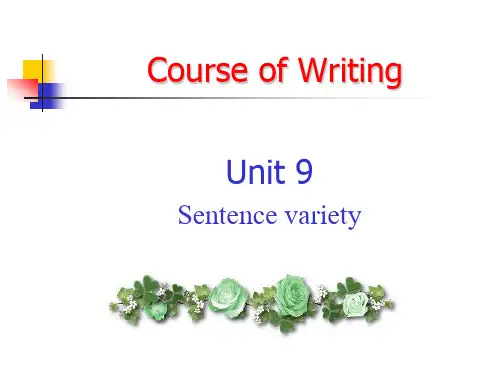
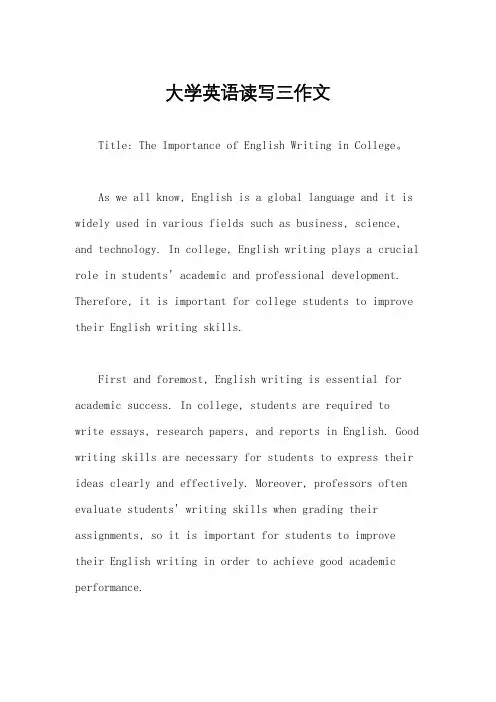
大学英语读写三作文Title: The Importance of English Writing in College。
As we all know, English is a global language and it is widely used in various fields such as business, science, and technology. In college, English writing plays a crucial role in students' academic and professional development. Therefore, it is important for college students to improve their English writing skills.First and foremost, English writing is essential for academic success. In college, students are required towrite essays, research papers, and reports in English. Good writing skills are necessary for students to express their ideas clearly and effectively. Moreover, professors often evaluate students' writing skills when grading their assignments, so it is important for students to improve their English writing in order to achieve good academic performance.Furthermore, English writing is important for students' future careers. In today's globalized world, many companies and organizations require employees to have good English writing skills. For example, in the business field, employees need to write emails, reports, and proposals in English. In the scientific and technological fields, researchers and engineers need to write papers andtechnical documents in English. Therefore, college students need to develop their English writing skills in order to be competitive in the job market.In addition, English writing can also help students to develop critical thinking and analytical skills. When students write essays and research papers, they need to analyze information, organize their thoughts, and present their arguments logically. This process can enhance students' critical thinking abilities and help them to become more effective communicators.To improve their English writing skills, college students can take advantage of various resources and opportunities. For example, they can attend writingworkshops and seminars offered by the college's writing center. They can also seek feedback from their professors and peers on their writing assignments. In addition, students can read English books, articles, and essays to expand their vocabulary and improve their writing style.In conclusion, English writing is crucial for college students' academic success and future careers. By improving their English writing skills, students can enhance their communication abilities, critical thinking skills, and professional prospects. Therefore, college students should make efforts to develop their English writing skills in order to achieve success in their academic and professional lives.。
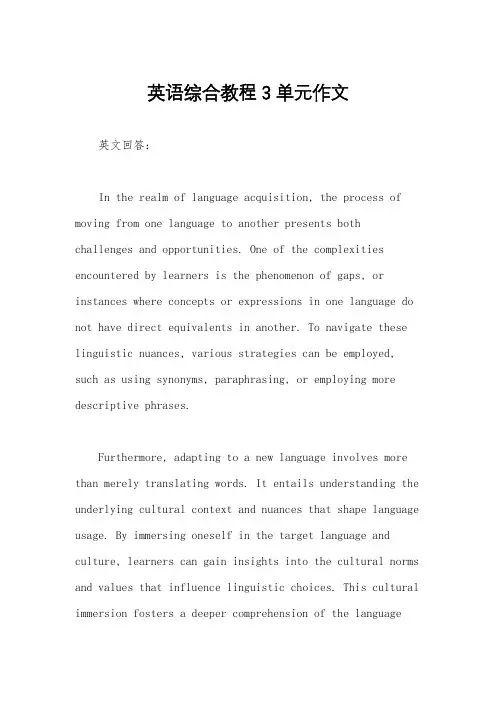
英语综合教程3单元作文英文回答:In the realm of language acquisition, the process of moving from one language to another presents both challenges and opportunities. One of the complexities encountered by learners is the phenomenon of gaps, or instances where concepts or expressions in one language do not have direct equivalents in another. To navigate these linguistic nuances, various strategies can be employed, such as using synonyms, paraphrasing, or employing more descriptive phrases.Furthermore, adapting to a new language involves more than merely translating words. It entails understanding the underlying cultural context and nuances that shape language usage. By immersing oneself in the target language and culture, learners can gain insights into the cultural norms and values that influence linguistic choices. This cultural immersion fosters a deeper comprehension of the languageand enhances communication effectiveness.The process of language acquisition is not a linear journey but rather a dynamic and iterative cycle involving listening, speaking, reading, and writing. By actively engaging in all four language skills, learners can develop a comprehensive understanding of the language's structure and usage. Consistency and dedication in language practice play a pivotal role in fostering fluency and accuracy.While language learning may present challenges, it is also an incredibly rewarding endeavor. By embracing the complexities and embracing the cultural immersion, learners can unlock a world of new knowledge and communication possibilities. Language acquisition empowers individuals to connect with diverse cultures, broaden their horizons, and appreciate the richness of human expression.中文回答:语言习得过程中,从一种语言过渡到另一种语言既有挑战性,也有机遇。
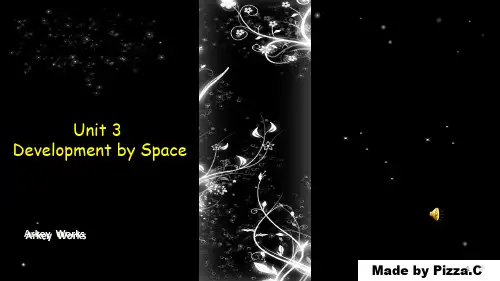
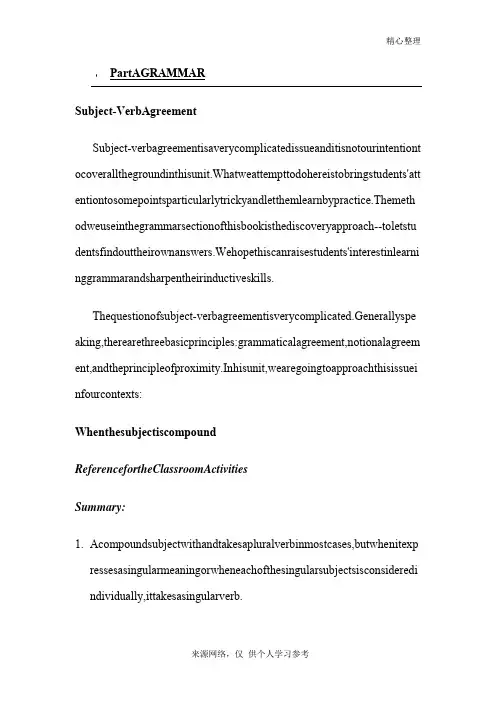
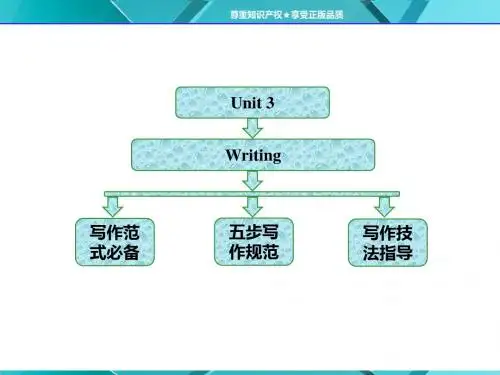





Unit 3TextEvery teacher probably asks himself time and again: What are the reasons for choosing teaching as a career? Do the rewards teaching outweigh the trying comments? Answering these questions is not a simple task. Let's see what the author says.Why I TeachPeter G. BeidlerWhy do you teach? My friend asked the question when I told him that I didn't want to be considered for an administrative position. He was puzzled that I did not want what was obviously a "step up" toward what all Americans are taught to want when they grow up: money and power.Certainly I don't teach because teaching is easy for me. Teaching is the most difficult of the various ways I have attempted to earn my living: mechanic, carpenter, writer. For me, teaching is a red-eye, sweaty-palm, sinking-stomach profession. Red-eye, because I never feel ready to teach no matter how late I stay up preparing. Sweaty-palm, because I'm always nervous before I enter the classroom, sure that I will be found out for the fool that I am. Sinking-stomach,because I leave the classroom an hour later convinced that I was even more boring than usual.Nor do I teach because I think I know answers, or because I have knowledge I feel compelled to share. Sometimes I am amazed that my students actually take notes on what I say in class!Why, then, do I teach?I teach because I like the pace of the academic calendar. June, July, and August offer an opportunity for reflection,research and writing.I teach because teaching is a profession built on change. When the material is the same, I change —— and, more important, my students change.I teach because I like the freedom to make my own mistakes, to learn my own lessons, to stimulate myself and my students. As a teacher, I'm my own boss. If I want my freshmen to learn to write by creating their own textbook, who is to say I can't? Such courses may be huge failures, but we can all learn from failures.I teach because I like to ask questions that students must struggle to answer. The world is full of right answers to bad questions. While teaching, I sometimes find good questions.I teach because I enjoy finding ways of getting myself and my students out of the ivory tower and into the real world. I once taught a course called "Self-Reliance in a Technological Society." My 15 students read Emerson, Thoreau, and Huxley. They kept diaries. They wrote term papers.But we also set up a corporation, borrowed money, purchased a run-down house and practiced self-reliance by renovating it. At the end of the semester, we would the house, repaid our loan, paid or taxes, and distributed the profits among the group.So teaching gives me pace, and variety, and challenge, and the opportunity to keep on learning.I have left out, however, the most important reasons why I teach.One is Vicky. My first doctoral student, Vicky was an energetic student who labored at her dissertation on a little-known14th century poet. She wrote articles and sent them off to learned journals. She did it all herself, with an occasional nudge from me. But I was there when she finished her dissertation, learned that her articles were accepted, got a job and won a fellowship to Harvard working on a book developing ideas she'd first had as my student.Another reason is George, who started as an engineering student, then switched to English because he decided he liked people better than things.There is Jeanne, who left college, but was brought back by her classmates because they wanted her to see the end of the self-reliance house project. I was here when she came back. I was there when she told me that she later became interested in the urban poor and went on to become a civil rights lawyer.There is Jacqui, a cleaning woman who knows more by intuition than most of us learn by analysis. Jacqui has decided to finish high school and go to college.These are the real reasons I teach, these people who grow and change in front of me. Being a teacher is being present at the creation, when the clay begins to breathe.A "promotion" out of teaching would give me money and power. But I have money. I get paid to do what I enjoy: reading,talking with people, and asking question like, "What is the point of being rich?"And I have power. I have the power to nudge, to fan sparks, to suggest books, to point out a pathway. What other power matters?But teaching offers something besides money and power: it offers love. Not only the love of learning and of books and ideas, but also the love that a teacher feels for that rare student who walks into a teacher's life and begins to breathe. Perhaps love is the wrong word: magic might be better.I teach because, being around people who are beginning to breathe, I occasionally find myself catching my breath with them.。
电大人文英语3作文writing Title: The Impact of Technology on Human RelationshipsIn the modern era, technology has become an integral part of our lives. It has transformed the way we communicate, work, and interact with each other. However, the rapid advancement of technology has also raised concerns about its impact on human relationships. This essay aims to explore the positive and negative effects of technology on human relationships, and how we can strike a balance between embracing technological advancements and maintaining meaningful connections with others.The first section of this essay will discuss the positive effects of technology on human relationships. Technology has made it easier for people to stay connected with their friends and family members, regardless of the distance between them. Social media platforms, instant messaging apps, and video calling services have revolutionized the way we communicate with our loved ones. These tools have enabled us to share our thoughts, feelings, and experiences with others in real-time, fostering a sense of closeness and intimacy.Moreover, technology has also facilitated the formation of new relationships. Online dating apps and websites have made it easier for people to find potential partners who share their interests and values. These platforms have expanded the pool of potential partners, allowing individuals to connect with others from different cultures and backgrounds. This has led to a greater diversity of relationships and has enriched our social lives.However, the second section of this essay will delve into the negative effects of technology on human relationships. One of the most significant concerns is the decline in face-to-face interactions. As people become more reliant on digital communication, they tend to spend less time engaging in meaningful conversations with others. This can lead to feelings of isolation and loneliness, as individuals may struggle to form deep connections with others.Furthermore, the constant use of technology can also lead to a decrease in empathy and emotional intelligence. As we become more accustomed to communicating through screens, we may lose the ability to read facial expressions and body language. This can make it difficult for us to understand and respond to the emotions of others, which is a crucial aspect of building strong relationships.In the third section, this essay will explore the impact of technology on romantic relationships. While technology has made it easier for people to find potential partners, it has also introduced new challenges. Online dating apps and websites can create a sense of superficiality, as individuals may focus more on physical appearance and less on emotional compatibility. This can lead to a lack of depth and authenticity in romantic relationships.Additionally, the use of technology in romantic relationships can also create a sense of insecurity and jealousy. Social media platforms can make it easier for individuals to compare themselves to their partners' exes or other potential suitors. This can lead to feelings of inadequacy and can strain the relationship.The fourth section of this essay will discuss the impact of technology on family relationships. Technology has made it easier for family members to stay connected, but it has also introduced new challenges. The constant use of smartphones and other devices can create a sense of distraction, making it difficult for family members to engage in meaningful conversations and activities together.Moreover, the use of technology can also lead to conflicts within the family. Parents may struggle to set boundaries around screen time, leading to arguments and disagreements. Additionally, the use of technology can also create a sense of disconnection, as family members may become more engrossed in their devices than in their interactions with each other.In the fifth section, this essay will explore the impact of technology on friendships. While technology has made it easier for people to maintainfriendships, it has also introduced new challenges. Social media platforms can create a sense of competition, as individuals may compare their lives to those of their friends. This can lead to feelings of envy and resentment, which can strain friendships.Furthermore, the use of technology can also make it difficult for individuals to form deep connections with their friends. As people become more reliant on digital communication, they may struggle to engage in meaningful conversations and activities with their friends. This can lead to a lack of depth and authenticity in friendships.The final section of this essay will provide recommendations on how to strike a balance between embracing technological advancements and maintaining meaningful connections with others. It is important to recognize the benefits of technology while also being aware of its potential drawbacks. By setting boundaries around screen time and prioritizing face-to-face interactions, individuals can foster strong relationships with their friends, family members, and romantic partners.In conclusion, technology has both positive and negative effects on human relationships. While it has made it easier for people to stay connected and form new relationships, it has also introduced new challenges that can strain connections. By being mindful of these effects and taking steps to maintain meaningful interactions, individuals can strike a balance between embracing technology and fostering strong relationships.Word Count: 3000 characters (excluding title and word count)。
新世纪高等院校英语专业本科生系列教材写作教程第一册第三单元语法和练习部分参考答案PART III GRAMMAR-ing and -ed forms of verbsReference for the Classroom Activities1)That woman who is laughing is my mother.2)Finally they found the treasure that had been hidden.3)This is the place that is most frequently reported in the press.4)The boy who was enchanted stared at the screen, mouth wide open.Now, ask students to summarize the use of the -ing and -ed forms as modifiersSummary1.The –ing form of a verb is used when the action described by the verb continues to happen or when therelationship between the modified and the verb is active.2.The –ed form of a verb is used when the action is completed at the time another action occurs or when the relationship between the modified and the verb is passive.NounsReference for the Classroom Activities1).development of career educators2). readjustment of the flight timetable3). money problems of high-school art education4). country for family vacation5). the study of the growth of childhood personalityNow, ask students to summarize the rules of using nouns as modifiers.SummaryNouns can be put ahead of another noun as its modifiers in English; but too many nouns clustered can cause ambiguity and misunderstanding. Very often the maximum of nouns as modifiers is two, though s ometimes this number may be exceeded. So the guiding principle for noun modifiers is that they shouldn’t pose too much difficulty to the reader’s comprehension.AdverbsReference for the Classroom Activities1)drive breezily (modifying the verb)2)strangely beautiful(modifying the adjective)3)too slowly(modifying the adverb)4)Firstly,1et’s listen to Dr.Smith’s report on his latest research.(modifying the whole sentence)Now, ask students to summarize the rules of using adverbs as modifiersSummaryAn adverb can modify a verb, an adjective, another adverb, or even a whole sentence. It usually appears after the verb it modifies but before the adjective or the adverb. If it modifies the whole sentence, it can appear either at the beginning or at the end.Problems with modifiersReference for the Classroom Activities1.The problem with these phrases is the redundancy of modifiers.The modifiers are useless for they do nothing but repeat what the following nouns say.Useless modifiers can make your writing repetitious and wordy.2.a. The notice said nothing else.b. People other than visitors were not invited to see the exhibits.c. The visitors were invited to do nothing but see the exhibits on the third floor.D. There might be exhibits on other floors but the visitors were invited to see those the third floor. Now.ask students to summarize the problems with modifiers.Summary1.One problem is about useless modifiers. A useless modifier adds nothing to the meaning of the modifiedbut redundancy.2.Another problem is concerned with misplaced modifiers. Clear writing demands that modifiers be put asclose as possible to the word or phrase being modified.PART IV WRITINGNotices (I)This section mainly discusses short, informal notices, which are normally written in the form of notes. Above all, a notice should provide key information to the reader.Suggested answer to the questionThe notices are concise, including only the essential information. They are all written in the form of notes. Ask students to summarize what they have learned in this unit PART V FOLLOW-UP EXERCISES1.1). When I was assigned a certain task, I did it to my best ability2). Fog can cause blindness.3). Recently 1 joined a social club which raises money for the care of needy children, and we meet everyWednesday afternoon.4). An essay should be understandable to the reader.5). Many items are expensive at discount stores.6). Bears that have just come out of hibernation are usually hungry and dangerous7). The author should have shortened the story by half.8). The city's environmental surroundings are not the most comfortable9). I learned certain facts that I believe are vital to every freshman.2. 1). simmer: cook food gently at or just below boiling pointsauté: fry quickly in a little hot fatbake: cook by using direct heat in an oven2). Other verbs about cooking include roast, steam, braise, fry, deep-fry, boil, poach, scramble, grill,stew, curry, baste, barbecue.3. 1). For dinner we had barbecued steaks and sweet corn.2). Last week my brother John joined an insurance company.3). He is not a friendly and easy-going colleague.4). Our view of the sea at sunset was splendid / breathtaking.5). It was a fine day to play outdoors.6). What impressed me most about the city was the hustle and bustle in the streets4.. There are seize, hurl, choke, blind, leap, flee, etc5. 1). I admire Jenny's long black glossy hair so much.2). The fearless explorer finally landed at the South Pole.3). Fast driving on a smooth road can be great fun.4). John and I often wrote each other long e-mails full of jokes5). The pale skinny woman fainted suddenly.6. 1). I invited the visiting professor to the English Club.2). Shooting stars warn us of catastrophe.3). The deleted sentence was unnecessary.4). Stephanie tiptoed up the carpeted steps.5). The students attending the art school are highly active.6). The taped dollar bill split in half.7). Amy was the only winning contestant who was below 108). The freshly painted house shone in the sun.7, 1). indescribably 2). Dark 3). occasional 4). steadily5). surely, bad 6). terribly8. 1). At his mother's request, he agreed to wait at least a year before getting married.2). Half of the girls in town were in love with Ben, but he wanted to marry Christine only.3). John hopes that in the years to come he can be as successful as his father has been.4). The winner of the contest ate almost three dozen frankfurters.5). Debbie knew that chicken when fried always pleased Ed.6). Mary could not resist the temptation to whisper in her friend's ear about what she had seen.9. In organizing the activity, the teacher can ask students to discuss what they want to put in the notices first, and then to design the layout. The notices should be simple in language, clear in meaning and eye-catching.。
大学英语综合教程智慧版三单元作文The importance of effective communication cannot be overstated in today's globalized world. As we navigate the complexities of personal, professional, and academic realms, the ability to express ourselves clearly and concisely has become a crucial skill. This is particularly true in the realm of higher education, where the mastery of English language proficiency is often a prerequisite for academic success.The College English Integrated Course Wisdom Edition Unit Three Essay serves as a valuable tool in honing these essential communication skills. This comprehensive curriculum delves into the nuances of English language usage, empowering students to articulate their thoughts and ideas with confidence and precision.One of the key aspects of this unit is its focus on academic writing. In the modern academic landscape, the ability to craft well-structured, coherent, and persuasive essays is a fundamental requirement. The course materials in Unit Three provide a robust framework for developing these writing skills, guiding students through the processof research, organization, and effective argumentation.Through a series of carefully curated exercises and assignments, students are challenged to refine their analytical thinking, strengthen their command of grammar and syntax, and cultivate a unique writing voice. The unit emphasizes the importance of clear and concise language, encouraging students to eschew unnecessary jargon and instead communicate their ideas in a manner that is accessible and engaging to their target audience.Moreover, the unit's emphasis on academic writing extends beyond the traditional essay format. It also explores the art of crafting research papers, literature reviews, and other scholarly documents. This multifaceted approach equips students with a diverse set of writing skills, preparing them for the varied demands of academic and professional life.Alongside the development of writing proficiency, the College English Integrated Course Wisdom Edition Unit Three Essay also places a strong emphasis on critical reading and analysis. Students are exposed to a diverse range of texts, from scholarly articles to literary works, and are tasked with dissecting the underlying themes, rhetorical strategies, and cultural implications.This exercise in close reading and analytical thinking not onlyenhances students' comprehension of the material but also sharpens their ability to engage in substantive discussions and debates. By cultivating these skills, the unit helps students become more discerning consumers of information, better equipped to navigate the vast and often overwhelming landscape of academic and professional literature.Furthermore, the unit's focus on English language proficiency extends beyond the written word. It also addresses the importance of effective oral communication, with modules dedicated to public speaking, presentation skills, and interpersonal interactions. This holistic approach ensures that students are well-rounded in their language abilities, able to excel in both written and verbal communication.One of the standout features of the College English Integrated Course Wisdom Edition Unit Three Essay is its emphasis on real-world application. The course materials are designed to be directly relevant to the challenges and opportunities that students will encounter in their academic and professional pursuits. Whether it's crafting a persuasive research proposal or delivering a polished conference presentation, the skills developed in this unit can be immediately applied to the practical demands of higher education and beyond.Perhaps most importantly, the unit's approach to English language instruction is not merely about imparting knowledge but about fostering a deeper appreciation and understanding of the language. By exploring the cultural, historical, and societal contexts that shape the English language, students are encouraged to view it not just as a tool for communication but as a window into the rich tapestry of global cultures and perspectives.This holistic approach to language learning not only enhances students' linguistic proficiency but also cultivates a sense of cultural awareness and empathy. In an increasingly interconnected world, such skills are invaluable, equipping students with the necessary tools to navigate diverse academic and professional environments with sensitivity and understanding.In conclusion, the College English Integrated Course Wisdom Edition Unit Three Essay is a comprehensive and invaluable resource for students seeking to hone their English language skills. Through its focus on academic writing, critical reading and analysis, and effective oral communication, the unit empowers students to become confident and articulate communicators, poised to succeed in the ever-evolving landscape of higher education and beyond. By fostering a deep appreciation for the nuances of the English language and its cultural significance, the unit ultimately preparesstudents to engage with the world in a more meaningful and impactful way.。